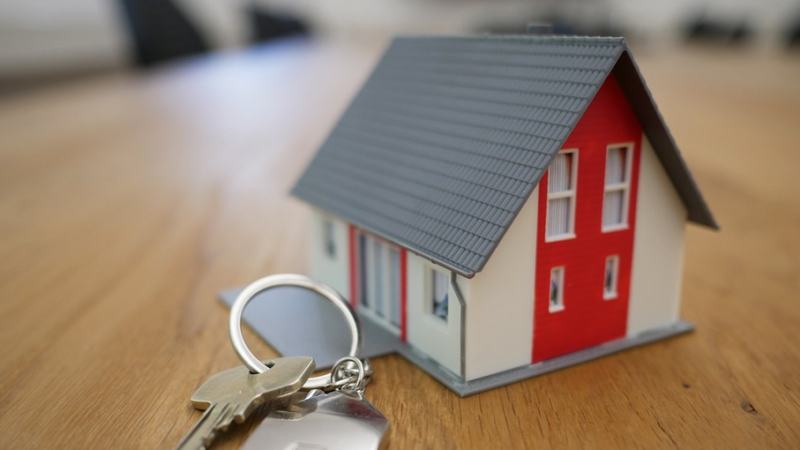Buying a new home is an exhilarating journey filled with dreams and possibilities. The thrill of envisioning your life in that perfect space can be overwhelming. However, amid the excitement lies a landscape of hidden costs that often catch first-time buyers off guard. Many people focus solely on the down payment, but there’s so much more to consider when budgeting for your new abode. From closing costs to property taxes, understanding these additional expenses will help you navigate this significant investment with confidence. Let’s dive into what you need to know before signing those papers and receiving your keys.
The Down Payment: What It Covers and What It Doesn’t
The down payment is often seen as the golden ticket when purchasing a home. It’s the lump sum you pay upfront, typically ranging from 3% to 20% of the property’s price. This amount directly affects your mortgage terms and monthly payments. However, it doesn’t cover everything. For instance, it won’t include closing costs or any necessary repairs that might come up after the sale. Homeowners should be prepared for these additional expenses. Another misconception is that a down payment guarantees loan approval. Lenders consider various factors beyond just this initial investment, such as credit scores and income levels.
Closing Costs: Understanding the Fees and Taxes
When you’re ready to buy a home, closing costs can be a surprise. These fees are often overlooked but play a crucial role in the finalization of your purchase. Closing costs typically range from 2% to 5% of the home’s price. This can add up quickly, depending on what you’re buying. Fees include loan origination, title insurance, appraisal costs, and attorney fees. Each varies based on location and lender practices. Don’t forget about taxes too. Transfer taxes or recording fees might apply when ownership changes hands.
Home Inspection Fees: Why They’re Necessary and How Much They Can Cost

Home inspection fees are a crucial part of the home-buying process. They provide assurance that you’re making a sound investment. An experienced inspector evaluates the property for any hidden issues, ensuring there are no costly surprises after closing. Typically, these fees can range from $300 to $500, depending on various factors like location and the size of the home. Some inspections may cost more if additional services like radon testing or pest inspections are included. Investing in an inspection might feel like an added expense, but it pays off in peace of mind. Knowing about potential repairs ahead of time allows you to negotiate with sellers or budget effectively for future expenses.
Property Taxes: How They Vary by Location and How to Estimate Them
Property taxes can be a surprise for many new homeowners. They vary significantly based on where you live. Each state, and even different counties within the same state, has their own tax rates and assessment methods. To estimate your property taxes, start by understanding the local tax rate. This is often expressed as a percentage of your home’s assessed value. Some areas may have higher rates due to funding needs for schools or infrastructure.
Buying a home is often seen as one of the most significant milestones in life. However, it’s essential to recognize that the journey doesn’t end with just saving for your down payment. The excitement can quickly turn into stress when unexpected costs arise down payment usually takes center stage in discussions about purchasing a home. While it’s crucial, it only covers part of what you need to budget for. Other expenses come into play that can catch first-time buyers off guard. Closing costs add another layer to your financial plan. These fees and taxes are sometimes overlooked but are vital in finalizing your purchase. Understanding these charges helps set realistic expectations for your total expenditure. Home inspections may feel like an added burden at first glance, but they serve a critical purpose. Investing in this service protects you from potential …



 One of the main advantages of real estate syndications is diversification. With syndicated properties, investors can spread their investments over multiple markets and asset classes, reducing risk. This type of investing also gives investors access to higher-priced properties and larger returns than they ca obtain by investing in individual assets.
One of the main advantages of real estate syndications is diversification. With syndicated properties, investors can spread their investments over multiple markets and asset classes, reducing risk. This type of investing also gives investors access to higher-priced properties and larger returns than they ca obtain by investing in individual assets. Finally, investing in syndications provides investors with an opportunity to leverage capital. Syndication sponsors typically partner with multiple investors who contribute funds towards buying a property. This allows for a significant investment into the property than what would be possible with just one investor.
Finally, investing in syndications provides investors with an opportunity to leverage capital. Syndication sponsors typically partner with multiple investors who contribute funds towards buying a property. This allows for a significant investment into the property than what would be possible with just one investor.
 If you have a poor credit score, it can be difficult to qualify for a mortgage. Even if you can get approved for a loan, the terms may not be favorable, and the interest rates could be higher than what you would find with a rent agreement. In this case, renting is usually better until your credit improves to get better terms on a mortgage.
If you have a poor credit score, it can be difficult to qualify for a mortgage. Even if you can get approved for a loan, the terms may not be favorable, and the interest rates could be higher than what you would find with a rent agreement. In this case, renting is usually better until your credit improves to get better terms on a mortgage. If you are looking for a place to live in the short term, it is usually more affordable and convenient to rent than to buy. This could be due to job relocation or if you only plan to stay in an area for a few months or less. With a rental, you can get out of the agreement much more accessible than with a mortgage.
If you are looking for a place to live in the short term, it is usually more affordable and convenient to rent than to buy. This could be due to job relocation or if you only plan to stay in an area for a few months or less. With a rental, you can get out of the agreement much more accessible than with a mortgage. In order to qualify for most mortgages, you need at least 20% of the home’s
In order to qualify for most mortgages, you need at least 20% of the home’s 
 The first step in the home-buying process is to get pre-approved for a
The first step in the home-buying process is to get pre-approved for a  The third step in the home-buying process is to negotiate a purchase agreement. This document outlines all of the details of your transaction, such as the price, closing costs, and any contingencies. It’s essential to ensure you get everything you want out of the purchase agreement before signing on the dotted line. There have been instances where buyers have regretted not negotiating for certain items, such as a home warranty or other concessions. This is something that you should not overlook. Many buyers make the mistake of thinking that all purchase agreements are the same, but they can vary greatly.
The third step in the home-buying process is to negotiate a purchase agreement. This document outlines all of the details of your transaction, such as the price, closing costs, and any contingencies. It’s essential to ensure you get everything you want out of the purchase agreement before signing on the dotted line. There have been instances where buyers have regretted not negotiating for certain items, such as a home warranty or other concessions. This is something that you should not overlook. Many buyers make the mistake of thinking that all purchase agreements are the same, but they can vary greatly.
 The first step in the home-buying process is to get a building inspection. This will help you identify any potential property issues that you may not have been aware of. It is important to have a professional inspector take a look at the property so that you can be sure that there are no hidden problems. If you are from Adelaide, you can find many companies that offer building inspections. Building inspectors Adelaide is known to be one of the most reliable companies in the area. Many are familiar with the company and they offer a wide range of services.
The first step in the home-buying process is to get a building inspection. This will help you identify any potential property issues that you may not have been aware of. It is important to have a professional inspector take a look at the property so that you can be sure that there are no hidden problems. If you are from Adelaide, you can find many companies that offer building inspections. Building inspectors Adelaide is known to be one of the most reliable companies in the area. Many are familiar with the company and they offer a wide range of services. The second step is to make
The second step is to make  The third step is to get pre-approved for a mortgage. This will give you an idea of how much money you will be able to borrow from the bank. It is important to get pre-approved before making an offer on a property so that you know how much money you have to work with. A pre-approved mortgage will also give you an edge over other buyers who are not pre-approved. Many sellers prioritize pre-approved buyers for a mortgage because it shows that they are serious about purchasing the property. Aside from that, being pre-approved will also give you a better idea of what you can afford.
The third step is to get pre-approved for a mortgage. This will give you an idea of how much money you will be able to borrow from the bank. It is important to get pre-approved before making an offer on a property so that you know how much money you have to work with. A pre-approved mortgage will also give you an edge over other buyers who are not pre-approved. Many sellers prioritize pre-approved buyers for a mortgage because it shows that they are serious about purchasing the property. Aside from that, being pre-approved will also give you a better idea of what you can afford.
 The location of your home is more important than you think. Your needs will determine the ideal location for your home. You may prefer to live downtown if you can quickly get to shopping, nightlife, and other leisure activities. It is vital to choose the right neighborhood before buying a home. To avoid disappointment later, it is important to have a clear idea of the neighborhood and the location of the home you want to buy.
The location of your home is more important than you think. Your needs will determine the ideal location for your home. You may prefer to live downtown if you can quickly get to shopping, nightlife, and other leisure activities. It is vital to choose the right neighborhood before buying a home. To avoid disappointment later, it is important to have a clear idea of the neighborhood and the location of the home you want to buy.